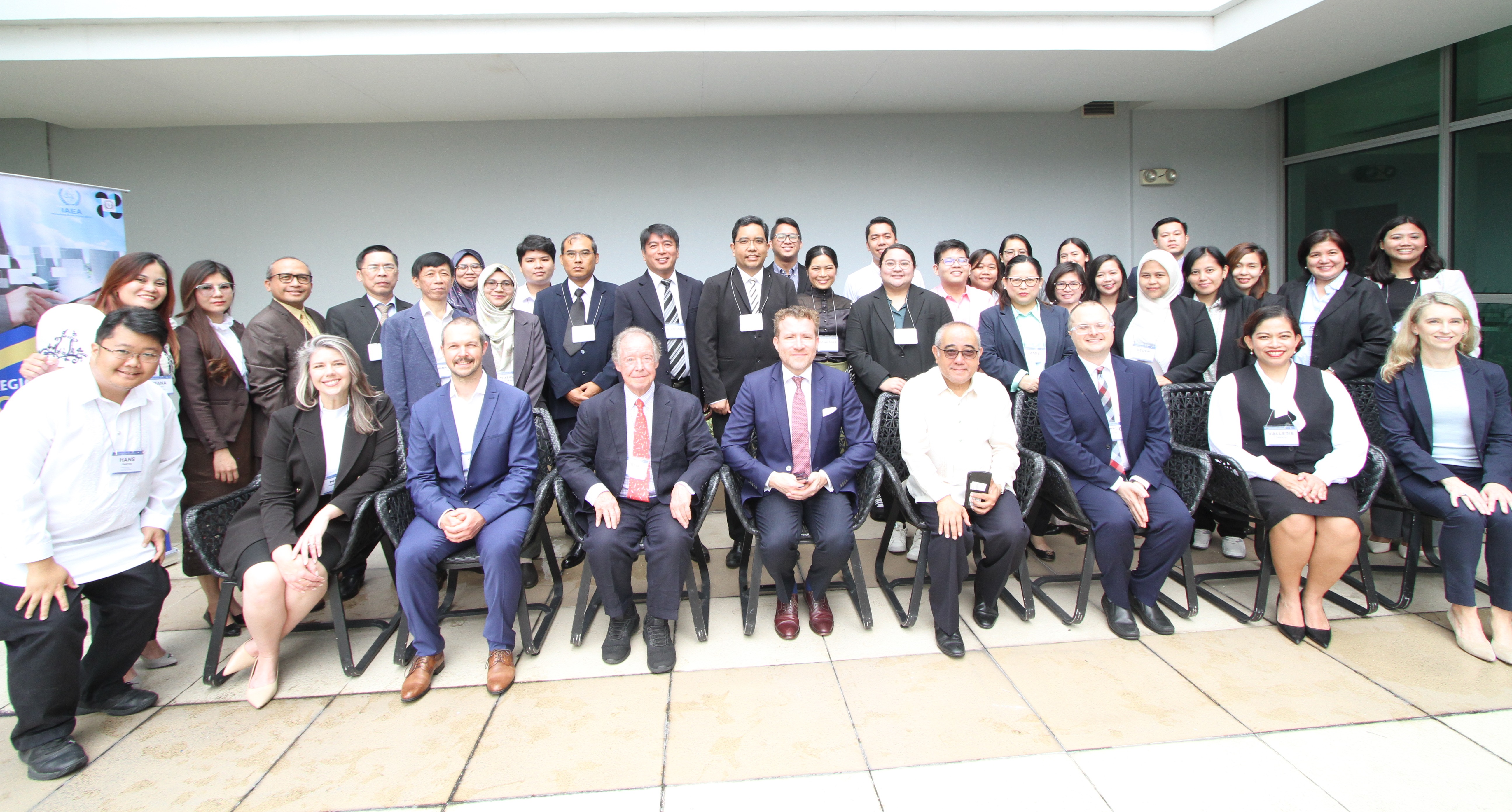Philippines spearheads workshop on convention for nuclear-related civil liability with ASEAN countries
Taking the lead in a renewed initiative among ASEAN countries to address the matter of civil liability in case of nuclear incidents in the region, the Department of Science and Technology – Philippine Nuclear Research Institute hosted a regional workshop by the International Atomic Energy Agency (IAEA) on the Convention on Supplementary Compensation for Nuclear Damage from July 1 to 4 at the Novotel Manila Araneta in Quezon City.
The Convention is the latest and most comprehensive to date in a wide umbrella of international agreements that provide for the liability and compensation to be paid for damages involving a nuclear incident in a nuclear installation as well as during the transport of nuclear materials.
This legal instrument covers nuclear damage not only in terms of personal injury and damage to property, but also environmental damage and other forms of economic loss. Said agreement also expands jurisdiction over civil suits, allowing victims to sue for damages in countries where a nuclear accident occurs up to the country’s exclusive economic zone.
Beyond this, the Convention also provides for a comprehensive insurance scheme to cover nuclear reactors and facilities.
To this end, the IAEA sent a team of legal luminaries and insurance industry experts to assist representatives from Australia, Indonesia, Laos, Malaysia, Thailand, Vietnam, and the Philippines in deciding on the benefits of participating in the Convention.
The Philippines was long since a party to the 1963 Vienna Convention on Civil Liability for Nuclear Damage, and indeed these provisions are embodied in the current Republic Act 5207 or the Atomic Energy Regulatory and Liability Act of 1968.
The country is also presently a signatory to the updated 1997 Vienna Convention and to the Convention on Supplementary Compensation that took effect in 2015, with the IAEA looking forward to the Philippines’ ratification of the latest agreement.
To help the Philippine government arrive at an informed decision and to fast-track the process, legislative staff from both houses of Congress were joined by officials and representatives from various government agencies to participate in the workshop. Among the participating agencies were the Departments of Energy, Foreign Affairs, Trade and Industry (Strategic Trade Management Office), Justice, Department of Science and Technology (Department Legislative Liaison Office), Environment and Natural Resources (Environmental Management Bureau) and Budget and Management.
In particular, House Special Committee on Nuclear Energy Chairperson Mark Cojuangco also led many of the discussions with the IAEA experts during the workshop.
Cojuangco is the principal author of House Bill 9293 or the PhilATOM bill, which aims to create an independent nuclear regulatory body in the Philippines, as well as the more recent House Bill 9876, which aims to serve as the law to implement the provisions of the Convention in the country.
The bills were already approved on third reading by the House of Representatives – the PhilATOM bill in November 2023, followed closely by the civil liability bill on March of this year – with the Senate presently deliberating with various agencies, including DOST-PNRI, for the approval of the bill.
After the regional workshop, the IAEA experts also met further with legislative officials and staff along with representatives from the private sector to discuss how the Convention will be applicable as companies start to invest in nuclear power.
Executive Order 164 which was issued by former President Rodrigo Duterte in 2022 officially adopted nuclear power back into the country’s energy mix, a policy which was later affirmed by President Ferdinand Marcos Jr. in his first State of the Nation Address – while also carefully mentioning the indispensable compliance with IAEA safety standards, as well as due consideration for emerging developments in the field, such as small modular reactors.













































